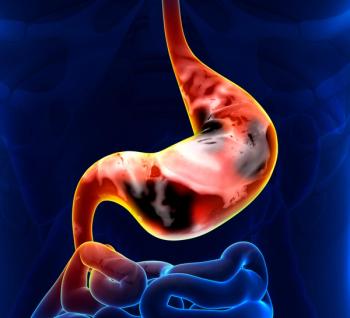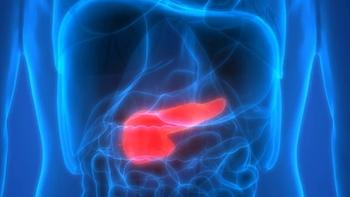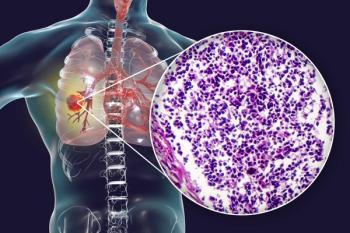
Taletrectinib showed improved efficacy in patients with ROS1-positive non–small cell lung cancer who were treatment-naïve.

Your AI-Trained Oncology Knowledge Connection!


Taletrectinib showed improved efficacy in patients with ROS1-positive non–small cell lung cancer who were treatment-naïve.


Busulfan/melphalan elicited higher PFS among patients with ISS stage II or stage III disease, and melphalan-200 improved PFS in ISS stage I disease.

Dive into the latest in genitourinary oncology with "Oncology Decoded," featuring discussions on KEYNOTE-564 with RCC.

Investigators will present detailed results from the phase 3 FORTITUDE-101 trial at a future medical meeting.

The EPCORE NHL-1 trial showed a 41% complete response rate with epcoritamab for patients with relapsed/refractory LBCL.

In those being screened for hereditary breast and ovarian cancer syndrome, use of a video tool improved the duration of physician-led genetic counseling.

“It’s a drug that I’m very comfortable with, and it is a drug I’ll likely use primarily in the first-line setting,” stated Jorge Nieva, MD, on taletrectinib in non–small cell lung cancer.

Data from the phase 1/2 WU-KONG1 study support the accelerated approval of sunvozertinib in this population.


The expert panel discussed the efficacy observed with cilta-cel in patients with relapsed/refractory multiple myeloma.

Explore the latest advancements in pancreatic cancer treatment, focusing on genetic mutations, targeted therapies, and emerging clinical strategies.

Data supporting the FDA decision came from the phase 1/2 LINKER-MM1 trial.

The system showed enhanced diagnostic accuracy of intraoperative imaging, potentially improving the extent of resection while reducing residual disease.

Data from the HERIZON-BTC-01 trial evaluating zanidatamab in previously treated, unresectable HER2-positive biliary tract cancer support the decision.

Those being treated for peritoneal carcinomatosis may not have to experience the complication rates or prolonged recovery associated with surgical options.


The MALT1 inhibitor demonstrated a favorable safety profile and tolerability in findings from a phase 1 clinical trial presented at the EHA 2025 Congress.

For patients with peritoneal carcinomatosis, integrating PIPAC into a treatment regimen does not interrupt their systemic therapy.

A total of 35% of patients with fully resected metastatic lung osteosarcoma treated with OST-HER2 achieved 1-year event-free survival.

Use of the novel artificial intelligence–based test may provide a painless, low-cost alternative in bladder cancer screening.

Data support incorporating volumetric PET biomarkers into toxicity risk prediction for patients receiving CAR T-cell therapy for LBCL.


89Zr-DFO-daratumumab shows activity in identifying and localizing multiple myeloma, even in FDG-non-avid cases, per new phase 2 data.

Data from the phase 3 ASTRUM-005 trial support the MHRA’s approval of serplulimab for patients with extensive-stage small cell lung cancer.

Gedatolisib showed promising ORRs when given in combination with darolutamide and trastuzumab biosimilar in mCRPC and mBC, respectively.

Nicholas J. Hornstein, MD, PhD, highlighted results from the phase 3 ATOMIC and CHALLENGE trials in CRC presented at the 2025 ASCO Annual Meeting.

Benjamin Golas, MD, discusses how the use of PIPAC may work in conjunction with systemic chemotherapy for those with peritoneal carcinomatosis.

Deciding when to use immunotherapy and how to utilize antibody-drug conjugates are complicated processes that require multidisciplinary collaboration to ensure that all patients with breast cancer receive appropriate and efficient care.

According to Benjamin J. Golas, MD, PIPAC could be used as a bridging therapy before surgical debulking or between subsequent large surgical operations.